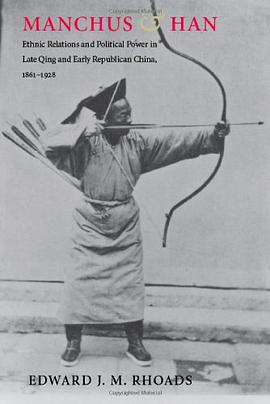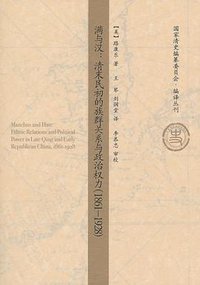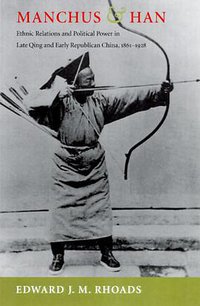Manchus and Han
Douban
Ethnic Relations and Political Power in Late Qing and Early Republican China, 1861-1928
Edward J. M. Rhoads
overview
China's 1911-12 Revolution, which overthrew a 2000-year succession of dynasties, is thought of primarily as a change in governmental style, from imperial to republican, traditional to modern. But given that the dynasty that was overthrown—the Qing—was that of a minority ethnic group that had ruled China's Han majority for nearly three centuries, and that the revolutionaries were overwhelmingly Han, to what extent was the revolution not only anti-monarchical, but also anti-Manchu?
Edward Rhoads explores this provocative and complicated question in Manchus and Han, analyzing the evolution of the Manchus from a hereditary military caste (the "banner people") to a distinct ethnic group and then detailing the interplay and dialogue between the Manchu court and Han reformers that culminated in the dramatic changes of the early 20th century.
Until now, many scholars have assumed that the Manchus had been assimilated into Han culture long before the 1911 Revolution and were no longer separate and distinguishable. But Rhoads demonstrates that in many ways Manchus remained an alien, privileged, and distinct group. Manchus and Han is a pathbreaking study that will forever change the way historians of China view the events leading to the fall of the Qing dynasty. Likewise, it will clarify for ethnologists the unique origin of the Manchus as an occupational caste and their shifting relationship with the Han, from border people to rulers to ruled.
contents
Intro
Contents
Illustrations
Acknowledgments
Introduction
1 / Separate and Unequal
2 / Cixi and the “Peculiar Institution”
3 / Zaifeng and the “Manchu Ascendency”
4 / The 1911 Revolution
5 / Court and Manchus after 1911
Conclusion
Notes
Glossary
Bibliography
Index

